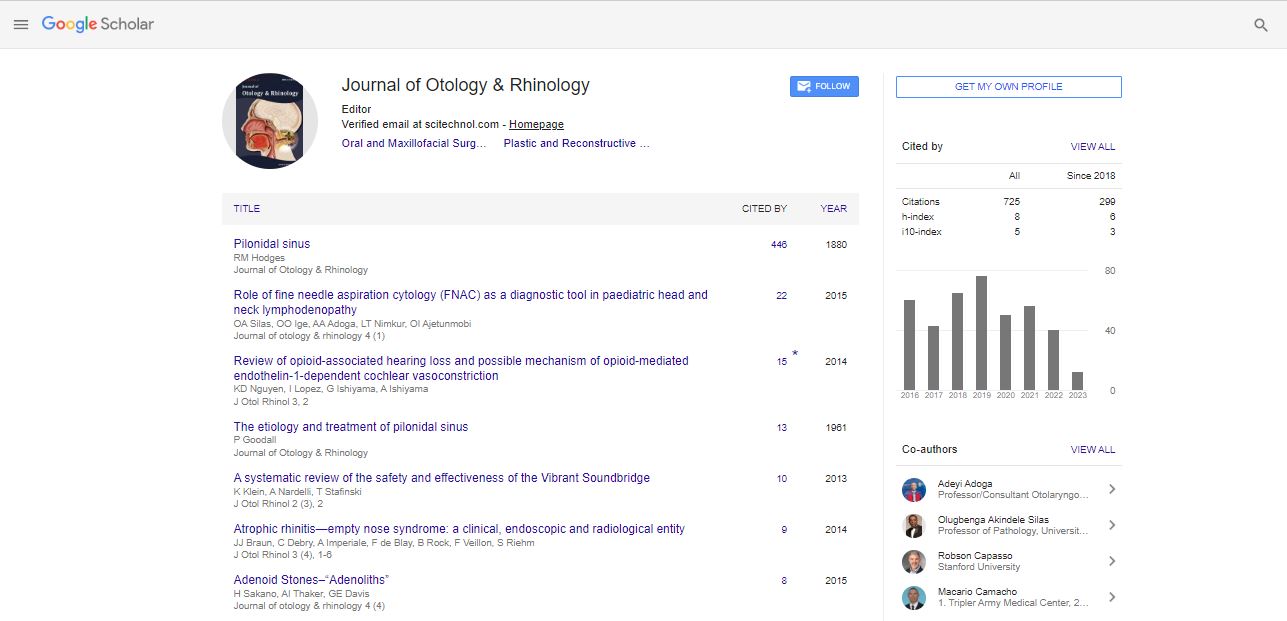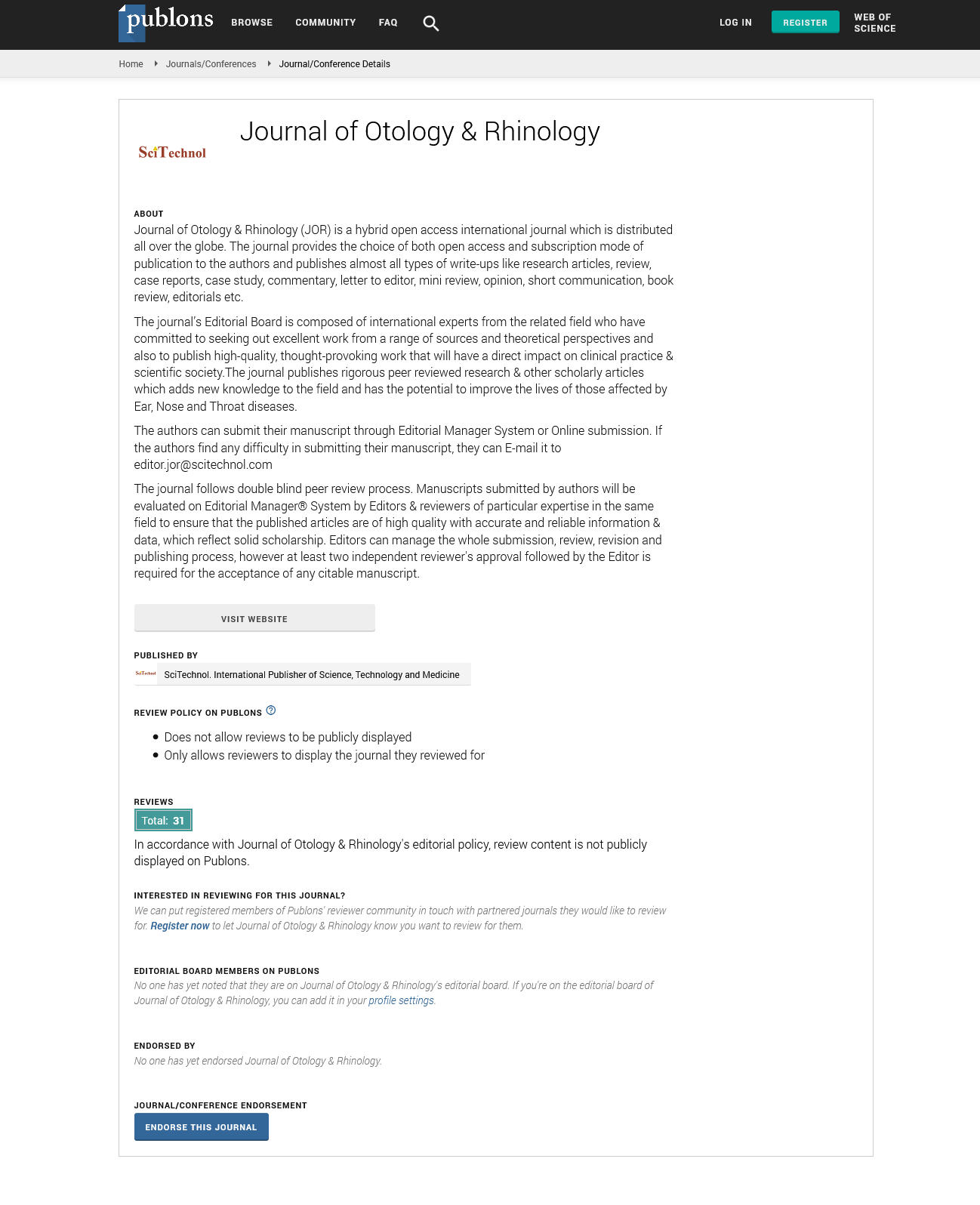Neuroplasticity and tinnitus
Mostafa R Mohamed Khalifa
Assiut University, Egypt
: J Otol Rhinol
Abstract
Tinnitus is one of the most widespread disorders of the auditory system, affecting approximately 17% of the general population. In addition, it is one of the most difficult to treat symptoms in audiological practice. It is the perception of sound in the absence of an appropriate external Sound source. Reference to tinnitus as “ringing in the ears” dates back in UK to the “Compendium” of 1240. There is considerable evidence that expression of neural plasticity plays a central role in the development of the abnormalities that cause many forms of tinnitus. Tinnitus has similarities with the phantom limb syndrome and central neuropathic pain. These symptoms belong to a group of adverse and harmful effects that can occur when neural plasticity is turned on and they have been termed “plasticity disorders”. Expression of neural plasticity can change the balance between excitation and inhibition, promote hyperactivity, and cause re-organization of specific parts of the nervous system or redirection of information to parts of the nervous system not normally involved in processing of sounds (such as the nonclassical, or extralemniscal pathways). The strongest promoter of expression of neural plasticity is deprivation of input, which explains why tinnitus often occurs together with hearing loss or injury to the auditory nerve. The aim of this presentation is to discuss state of the art insights on neuroplasticity of tinnitus.
Biography
Mostafa R Mohamed Khalifa is an Audio-vestibular medicine Consultant and Lecturer at Assiut University, Egypt. He has been practicing in the field of audio-vestibular medicine since 1999, combining academic, research, and clinical activities. He is teaching post-graduate students. In addition, has his clinic for assessing patients with hearing loss, tinnitus and vestibular diseases. He is conducting both diagnostic and rehabilitative maneuvers including acoustical and electrical sound amplification. He has been practicing his field in Egypt, Germany, and Saudi Arabia. His main research interests include: syndromic and non-syndromic genetic hearing loss in Egyptian population, with novel gene mutation discovery which was published in 2010.
E-mail: m_refaat@yahoo.com
 Spanish
Spanish  Chinese
Chinese  Russian
Russian  German
German  French
French  Japanese
Japanese  Portuguese
Portuguese  Hindi
Hindi 


